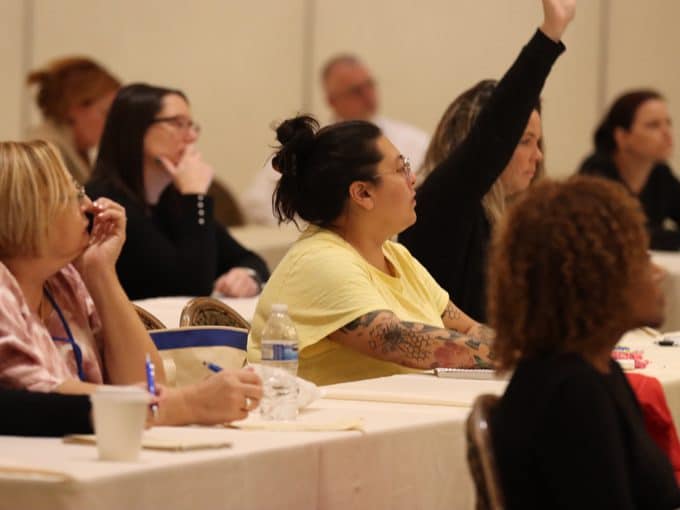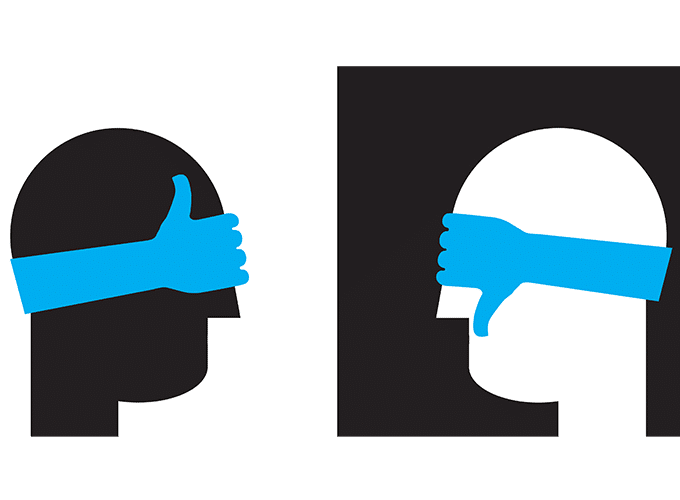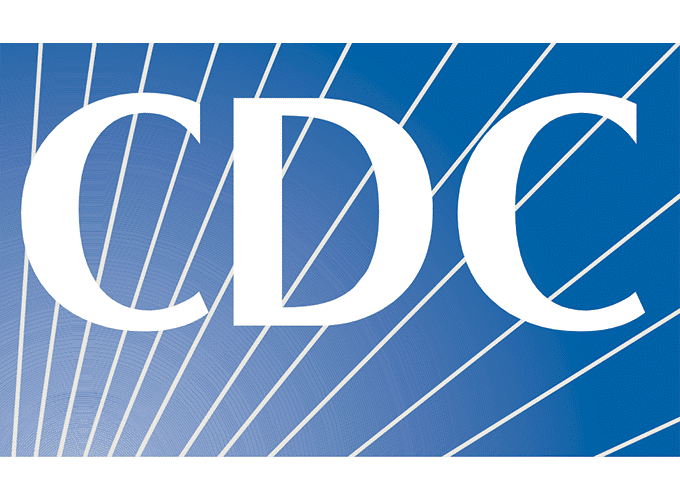
Share Your Expertise at the NCCHC Spring Conference on Correctional Health Care
Help shape the future of correctional health care.
Home Beware the Dangers of Cognitive Bias
 Dec 13, 2023
Dec 13, 2023By Pamela Rollings-Mazza, MD, BSN, CCHP, and Tommy Williams, BSN, RN, CCHP
Whether we admit it or not, we all have unconscious biases. As human beings, it’s impossible not to. In order to make sense of all the information that constantly bombards us and simplify thinking and decision-making, our brains filter information through our personal experiences and preferences.
That is known as cognitive bias, which the Cambridge English Dictionary defines as “the way a particular person understands events, facts, and other people, which is based on their own particular set of beliefs and experiences and may not be reasonable or accurate.”
Cognitive bias allows us to quickly process and prioritize large amounts of data and fill in missing details, but it also distorts our understanding and creates errors in thought that can result in bad decisions and mistakes.
For health care professionals, cognitive bias, left unchecked and unchallenged, can lead to erroneous diagnoses, poor treatment decisions, and bad outcomes.
Types of Cognitive Bias
When working with incarcerated individuals, it is especially important to “leave your biases at the door” and be careful not to fall victim to these common forms of cognitive bias.
Confirmation bias, looking for or overvaluing information that confirms what we already believe or supports our existing ideas. As social psychologist Ziva Kunda, PhD, explained, “We give special weight to information that allows us to come to the conclusion we want to reach.” Confirmation bias impedes our ability to critically examine our own beliefs or seek new solutions to a problem. Our tendency to ignore any new information that is contradictory to our beliefs leads to poor decision-making. For example, we may disregard or rationalize lab results that do not support a favored diagnosis, thus failing to acknowledge the possibility of other diagnoses.
Representativeness, making decisions based on stereotypes. We believe the likelihood of two things happening together is greater when they resemble or are similar to each other. Biased decisions are made about a current situation or person when compared to past situations and people with perceived similarities. For instance, we might be reluctant to take pain complaints seriously from individuals with substance abuse disorders and instead assume they are drug-seeking.
Availability bias, accepting an idea based on how “available” it is, or how easily it comes to mind. Availability bias is a tendency to think that things that happened recently are more likely to happen again. We overestimate how likely something is to happen based on how easily we remember it happening before. This selective recall of information displaces our ability to accurately interpret probabilities or consider other scenarios. It is a common mistake in health care when clinicians make a diagnosis because it readily comes to mind from similar past events. During the height of the COVID pandemic (and even now) it was easy to assume that every sore throat or fever was COVID without considering other possibilities.
Anchoring bias, a tendency to rely too much on the first information we receive. Regardless of accuracy, that first information is used as a reference point in framing our belief. We may place greater emphasis on initial symptoms and not be able to adjust a diagnosis when additional information becomes available.
Framing effect, arriving at different conclusions from the same information based solely on how the information is presented. An outcome presented as a positive is more favorable to us than an outcome framed as a negative. Consider different framings of two medical procedures being considered for 1,000 people with a terminal heart condition: Procedure A can save 250 people, while Procedure B would result in a 75% loss of life. Even though the results are identical, Procedure A sounds preferable. Too often, we accept problems as they are framed without looking at them deeply, critically, or from other perspectives.
Gender bias, the tendency to assign specific characteristics and behavior to – and provide different treatment based on – a person’s gender or perceived gender identity. For instance, studies consistently show that clinicians take complaints of pain from males more seriously than those same complaints when made by females.
Fundamental attribution error, underestimating the influence of a situation on people’s behavior. With this type of bias, we believe that people’s personality traits have more influence on their actions than other factors over which they don’t have control. So when a colleague arrives late to a team meeting, others in attendance may see that person as rude without knowing or considering the possibility that their child is sick at home. The tendency to blame another’s actions on their personality as opposed to external factors beyond their control creates conflict and diminishes trust.
Affinity bias, favoring people with similar characteristics, backgrounds, and experiences as our own. That can include not only those who share our ethnicity, religion, or political views, but also our personal interests, favorite sports teams, or musical tastes. We tend to be most comfortable around those who are like us. But when affinity bias is strong, we reject others who act or look differently, creating unwarranted preferential treatment and depriving us of valuable insight from others to whom we do not gravitate.
Survivorship bias, assuming all necessary information is contained in a success while ignoring past failures. For every favorable outcome, there are a multitude of unfavorable ones. We succumb to survivorship bias when we pay attention only to groups or sets that have passed a selection process while ignoring those that have not. Focusing solely on material or conditions that led to success leads to incorrect conclusions because of incomplete data. Similarly, the positive-results bias is where we are more likely to accept positive results over negative results.
Bandwagon effect or herd mentality, going along with the crowd. This is our habit of adopting certain behaviors or beliefs because “everybody’s doing it.” We take a particular view, follow an idea, or find something desirable because everyone else does too. Our decisions in these instances are based on emotion and not logic.
Dunning-Kruger effect, those with limited understanding or skill in a field overestimate their own knowledge and abilities. This bias arises because those who are incompetent in an area lack the understanding necessary to be aware of their incompetence. The converse is also true: those with significant knowledge or skill in a particular area tend to underestimate their competence. Not surprisingly, overestimation of knowledge, skill, or capability often leads to mistakes.
Combating Cognitive Bias
Cognitive bias in all its forms prevents the exchange of accurate information, as we tend to avoid information we do not like or agree with. While we believe that we receive information objectively, our brains unconsciously filter data, distorting our perception of reality. Because bias can distort our critical thinking, we become prone to making irrational decisions and inaccurate judgments about others.
To overcome our cognitive biases, it is first necessary to acknowledge that they exist and that we are susceptible to them. Understanding common biases allows us to more easily recognize them when they occur.
Remember these tips to keep yourself from acting out of bias:
With understanding and practice, awareness of cognitive bias can lead to positive patient outcomes, healthy collaboration, and better decisions.
The authors are with PrimeCare Medical, Inc. Pamela Rollings-Mazza, MD, BSN, CCHP, is chief medical officer; Tommy Williams, BSN, RN, CCHP, is the company’s clinical research analyst.


